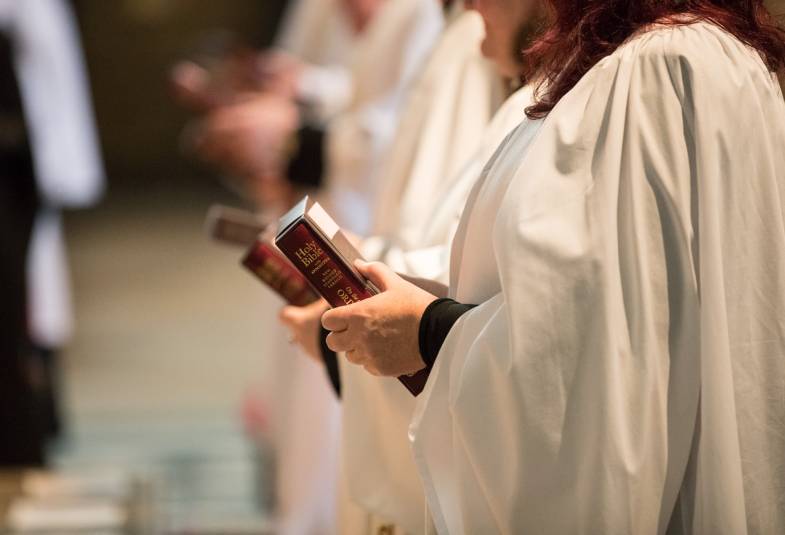17/06/2020

A total of 570 deacons were ordained in 2019, with women making up just over a half, or 51% of the new intake.
Deacons are the first of three orders of ordained ministry. Whilst all clergy continue as deacons throughout, the majority are also ordained as priests at the end of their first year of ministry.
The statistics show that women made up around 32% of the 20,000 active clergy last year, with a growing proportion of senior posts such as Bishops, Archdeacons and Cathedral Deans, occupied by women, from 25% in 2018 to 27% last year.
Women were in the majority starting training for ordained ministry for the third year running, with equal numbers of men and women sponsored to train for ‘incumbent’ posts – such as Rector or Vicar - over the last two years. However currently only 25% of incumbent posts are occupied by women.
The number of stipendiary, or paid clergy, remained stable, at 7,700, between 2018 and 2019, following a period of decline. There were 7,830 Readers or licensed lay ministers compared to just under 10,000 in 2010. Readers and licensed lay ministers are not ordained but can lead worship and preach in churches, among other roles.
The statistics show the number of stipendiary clergy from black, Asian or minority ethnic (BAME) backgrounds stood at 3.8%, while 7.8% of people entering training for ordained ministry last year were from a BAME background.
Out of a total of 550 people beginning training for ordained ministry last year, nearly a quarter, or 24%, were under 32 years old and more than two fifths, 44%, were aged under 40.
The Rt Revd Chris Goldsmith, Director of Ministry for the Church of England, said: “In recent years there has been an increasing diversity among our clergy, but we will not be content until those in public ministry truly reflect the whole church and the communities which they serve.”
He added: “The contribution of lay ministers to the mission and ministry of the church is hugely valued both in terms of sustaining the ongoing life of parishes and chaplaincies but also in the innovation and spiritual entrepreneurship increasingly characterising frontline expressions of the church as a Christian presence in every community.”
The Bishop of Derby, Libby Lane, who was consecrated as the first female bishop in the Church of England in 2015, said: “Women are now a widely visible presence among clergy in the Church of England – praise God. However there are still other under-represented groups whose vocations to ordination are being missed.
“I pray that the lessons learnt in encouraging women can make a difference for those who are not yet recognised, so Church of England clergy, at every level, better reflect the glorious diversity of our country.”
She added: “Last year marked 25 years since I was ordained priest. For over a quarter of a century women and men together have been selected, trained, ordained and appointed to serve in the Church of England.
“I thank God for the privilege of my ministry, and for the thousands of women and men who have shared this calling in that time.”